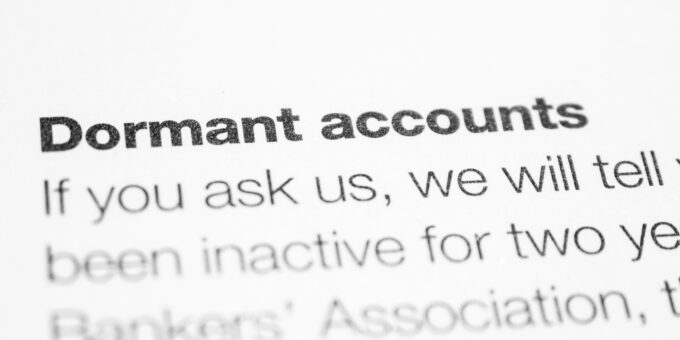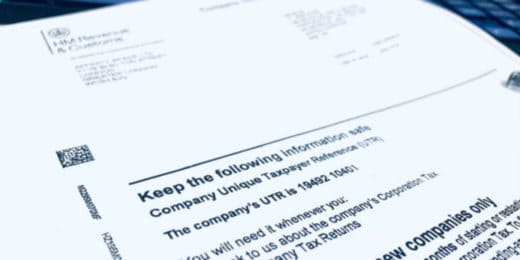Dormant company accounts are simplified annual accounts prepared by a company that is not doing business and has not received any income (e.g. bank interest or investments) or made any payments during its financial year.
Instead of filing more comprehensive annual accounts at Companies House and delivering a Company Tax Return with full accounts to HMRC, dormant companies can prepare a simple balance sheet for Companies House.
Key Takeaways
- Filing dormant company accounts simplifies compliance, saving time and costs compared to full annual accounts.
- Companies must inform HMRC of dormancy to avoid penalties and unnecessary tax obligations.
- Dormant companies can still incur penalties for late filings, emphasizing the importance of timely submissions.
Preparing and filing dormant company accounts
If a company is considered dormant by Companies House for an entire accounting period, it won’t have any ‘significant accounting transactions’. A significant accounting transaction is one that a company must enter in its accounting records. It refers to any income or expenditure other than:
- filing fees paid to Companies House (e.g. for sending a confirmation statement, changing the company name, or applying to re-register the company)
- penalties for late filing of accounts
- money paid for shares issued upon incorporation
If your company is dormant, you can save time and money by filing dormant company accounts rather than full accounts. The requirements are very simple, so you won’t need the help of an accountant to prepare them.
What do dormant company accounts include?
Dormant company accounts only need to include the following information:
- a balance sheet with statements above the director’s signature and printed name to the effect that ‘the company was dormant throughout the accounting period’
- any previous year’s figures for comparison (if applicable)
- certain notes to the balance sheet
Unlike full statutory accounts, dormant accounts don’t need to include a profit and loss account, a director’s report, or (if exempt) an auditor’s report.
Be aware that you may have to prepare full annual accounts for members if they ask you to do this. However, you won’t have to file a Company Tax Return and full accounts with HMRC unless the company starts trading.
Filing your dormant company accounts through Rapid Formations
At Rapid Formations, we offer a Dormant Company Accounts Service for just £49.99 per year. This is suitable for companies that satisfy the following requirements:
- limited by shares or limited by guarantee
- it has never traded since its formation
- it has not had any significant accounting transactions during the accounting period
Once you’ve purchased the service, we will email you a simple online questionnaire requesting the following details:
- company name
- company registration number
- authentication code
- confirmation that your company is eligible to file dormant accounts
- whether any shares have been paid up
- name of the director(s) who will sign off on the accounts
This information ensures we can prepare and submit your accounts correctly. Upon receiving your responses to the questionnaire, we will file your dormant company accounts at Companies House within one working day.
You don’t need to have formed your limited company with Rapid Formation to use our Dormant Company Accounts Service.
Alternatively, you may be able to submit dormant accounts on Companies House form AA02. This option is only available to companies limited by shares (not limited by guarantee) that have never traded.
Once received and processed, your dormant accounts (like all types of company accounts) are made publicly available on the Companies House register.
If your company is ineligible to use our service or file on form AA02
If your limited company is not eligible to submit accounts using our service or form AA02, you can file your dormant accounts on the Companies House service instead. It is suitable for companies limited by shares and companies limited by guarantee, including those that have previously traded.
Filing deadline for dormant company accounts
While your company remains dormant, you must prepare and file dormant company accounts with Companies House once a year. You have the same amount of time to file dormant accounts as you do to file other types of accounts.
The deadline for sending accounts to Companies House is normally 9 months after your accounting reference date (ARD). Your ARD marks the end of your company’s financial year. It falls on the anniversary of the last day of the month of incorporation (unless you change your company’s year-end).
However, if you are submitting your company’s first accounts, the filing deadline is 21 months after the date of incorporation.
For example:
- You form a company on 1 November 2024
- Your company’s first accounting reference date is 30 November 2025
- The filing deadline for your first accounts is 1 August 2026 (21 months after the date of incorporation)
- The filing deadline for your next accounts is 31 August 2026 (9 months after the ARD)
You can make your company’s accounts up to 7 days either side of its accounting reference date.
Late filing penalties for dormant company accounts
Companies House imposes late filing penalties for all types of accounts. If you deliver your dormant company accounts after the filing deadline, you will incur the following penalties:
- Up to 1 month late – £150
- More than 1 month but not more than 3 months late – £375
- More than 3 months but not more than 6 months late – £750
- More than 6 months late – £1,500
If you file late accounts in two successive financial years, the penalty will be double (e.g. £300 rather than £150 if the accounts are up to 1 month late). The penalties listed above apply to private companies. They are higher for public limited companies.
Audit exemption
A dormant company is exempt from audit if it has been dormant since incorporation or the end of its previous financial year and satisfies the following conditions:
- it is entitled to prepare individual accounts in accordance with the small companies regime
- it is not required to prepare group accounts
- it qualifies as a ‘small company’ in relation to that year, or would have qualified as small if it weren’t for the fact that it is a public company or member of an ineligible group
Under certain circumstances, a dormant company that is also a subsidiary can claim exemption from preparing accounts, filing accounts at Companies House, or both.
Exemption from filing accounts as a dormant subsidiary company
If your dormant company is also a subsidiary, you may not have to file dormant accounts with Companies House if the company meets a number of criteria, including:
- it is dormant throughout its financial year
- the company’s accounts period ends on or after 1 October 2012
- the parent company is established under the law of any part of the UK
In this situation, it may be possible to claim exemption from:
- preparing accounts under section 394A of the Companies Act 2006
- sending accounts to Companies House under section 448A
If you claim exemption from preparing accounts, you don’t have to send them to Companies House or prepare full accounts for the subsidiary’s members.
If you claim exemption from filing accounts, you must prepare annual accounts for the subsidiary but you don’t have to send them to Companies House.
It is also possible to claim exemption from audit as a subsidiary company.
Is my limited company dormant?
The term ‘dormant’ has different meanings at Companies House and HMRC. It’s important to understand these definitions.
A company is dormant according to Companies House if it has had no significant accounting transactions in its financial year. As previously mentioned, all forms of income and expenditure are deemed significant apart from the following:
- filing fees paid to Companies House
- penalties for late filing of accounts
- money paid for shares issued during incorporation
A company is usually dormant for Corporation Tax purposes (with HMRC) if it:
- has stopped trading after a period of activity and has no other income (e.g. investments)
- is a new limited company that hasn’t started trading
- is an unincorporated association or club owing less than £100 Corporation Tax
- is a flat management company
Therefore, your limited company is most likely dormant if it is not trading (not doing business), not receiving other forms of income (e.g. from investments), and not spending any money.
‘Trading’ refers to a wide range of activities, all of which can make a company active for Corporation Tax purposes. These include:
- buying or selling goods or services
- paying directors’ salaries or staff wages
- leasing property
- renting out property
- advertising
- earning interest
- paying bank fees or charges
- issuing or receiving dividends
HMRC provides detailed guidance for new and existing companies on what counts as dormant for Corporation Tax purposes.
To avoid accidentally forfeiting your dormant company status, you should refrain from opening a business bank account. If you have one already, it would be best to close it while your company is dormant. Incurring even one bank charge would make your company active for Corporation Tax and liable to file a tax return and full accounts with HMRC.
Telling Companies House and HMRC that your company is dormant
You do not need to tell Companies House if your company is dormant. If it’s dormant, you would simply file dormant company accounts when the time comes. Some companies like to change the company’s SIC code to 99999 (indicating “dormant”), but this has no legal effect and merely publicly identities that the company is probably dormant and not trading.
However, you must tell HMRC that your company is dormant for Corporation Tax purposes as soon as possible. If you fail to do so, HMRC will assume the company is trading and require you to file a Company Tax Return with full annual accounts.
If you receive a notice to file a Company Tax Return and fail to deliver one, HMRC will impose late filing penalties.
Why would a company be dormant?
There are many reasons why a company may be dormant. Below are some common scenarios:
- A company has been set up for the sole purpose of protecting a company name or holding an asset, such as land, real estate, or intellectual property.
- It is newly incorporated and the business isn’t ready to start trading—for example, if the business owners are still in the early stages of the set-up process, preparing to trade at some point in the future.
- The company was previously trading but operations have been put on hold (e.g. due to restructuring the business, the owner’s ill health, or any other reason).
- An existing business owner is planning to convert from sole trader to a limited company but they’re not ready to transfer the business over to the new structure.
- The company has ceased trading and will be formally closed and struck off the Companies House register.
There is no legal requirement to make your company dormant in these situations. However, doing so can simplify matters and save you time and money on certain administrative obligations.
Thanks for reading
Please comment below if you have any questions about this post, or contact our London-based team if you’d like to speak to us about our Dormant Company Accounts Service.
For more limited company guidance and small business advice, explore the Rapid Formations Blog.
Please note that the information provided in this article is for general informational purposes only and does not constitute legal, tax, or professional advice. While our aim is that the content is accurate and up to date, it should not be relied upon as a substitute for tailored advice from qualified professionals. We strongly recommend that you seek independent legal and tax advice specific to your circumstances before acting on any information contained in this article. We accept no responsibility or liability for any loss or damage that may result from your reliance on the information provided in this article. Use of the information contained in this article is entirely at your own risk.














Join The Discussion